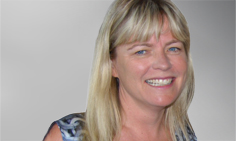IF you watch the ABC’s Q&A, or have even a passing flirtation with social media, it’s possible that last week, like me, you were transfixed by the comments of Arrernte, Alyawarre Elder Rosalie Kunoth-Monks.
She was, in part, responding to a fellow panellist, who had highlighted what he considered a failure of multiple initiatives to assist Aboriginal people, concluding that: "The problem has not been solved and it’s not going to be easy to solve.”
In a 3-minute speech that is well worth listening to, Kunoth-Monks celebrated her own cultural and linguistic resilience in the face of the ongoing effects of colonisation “I am not something that fell out of the sky for the pleasure of somebody putting another culture into this cultured being” …. “Don’t try and suppress me, and don’t call me a problem, I am not the problem”.
InSight this week coincides with publication of the MJA’s Aboriginal and Torres Strait Islander health issue, in which a Perspective article takes up the theme that being viewed as “the problem” is contributing to Indigenous disadvantage. The authors write that the media continues to be “colonised” by non-Indigenous ways of thinking and being, such as highlighting deficits, viewing Indigenous people as “the other”, racial stereotyping and underrepresentation.
They believe the media could learn from the health care sector, where efforts have been made to redress some of the same issues. We put this idea to the test in our first news story, encountering broad agreement that “Indigenous people are sick of being represented as sick and dysfunctional” and that the media should reflect on its own cultural biases to lift its game.
Last week in an InSight news story Professor Shane Houston put his finger on one of the reasons why Indigenous people might be seen as “a problem” for the hospital system when he said that “because one culture designed a system with its own people in mind, the policies and processes of that organisation unintentionally create a feeling of being discriminated against”.
In the case of acute coronary syndromes (ACS), this can lead to hesitancy to present for care, poor access to indicated medications and procedures, and ultimately, worse outcomes. Our second news story reports on the development of a coordinated, patient-centred pathway of care supported by Indigenous cardiac coordinators and designed to be available to every Indigenous patient with an ACS. It’s already showing results in some settings.
WA public health physician Dr Bret Hart has seen the demoralising effects of stigmatisation and low expectations and the rejuvenating effect of community empowerment. He addresses his InSight comment to Prime Minister Tony Abbott, urging him to act on the recommendations of a 2013 Senate inquiry, by supporting Indigenous Australians in all aspects of their lives to improve health.
Applying the “deproblematising” strategy can be useful in other aspects of health. Our third news story highlights a new pragmatic framework to off-label prescribing in hospitals. As one expert commented: “There are a whole lot of areas of medicine where large-scale studies are never going to be done but there are good reasons for considering use of medicines …”. When the available evidence is considered, the reasons for prescribing are clear, the patient provides informed consent and outcomes are monitored, off-label prescribing can be a valid therapeutic choice.
As part of the MJA’s commitment to Aboriginal and Torres Strait Islander health, the current issue is, and will remain, open access. The issue’s focus is very much on “what works” in Indigenous health services.
In the lead Editorial, Australian Indigenous Doctors’ Association president, Dr Tammy Kimpton, gently echoes the words of Rosalie Kunoth-Monks when she writes: “For Aboriginal and Torres Strait Islander people, our culture is a source of strength, resilience, happiness, identity and confidence. This philosophy embeds the importance of cultural safety into our daily practice.”
This is not a problem. It is something to value, celebrate, foster and respect.
Dr Ruth Armstrong is the medical editor of MJA InSight. Find her on Twitter: @DrRuthInSight

 more_vert
more_vert
I remember being told very forthrigtly at a meeting more than 10 years ago when I first worked in a majority indigenous community –
” how empowered would you feel if you are continually told you have the worst health , the worst housing , the worst education outcomes
by people who are all terribly concerned and trying to fix you . “
That comment – delivered somewhat more colorfully , -has always stayed with me and reminded me that I need to observe the whole situation better and listen more , talk less